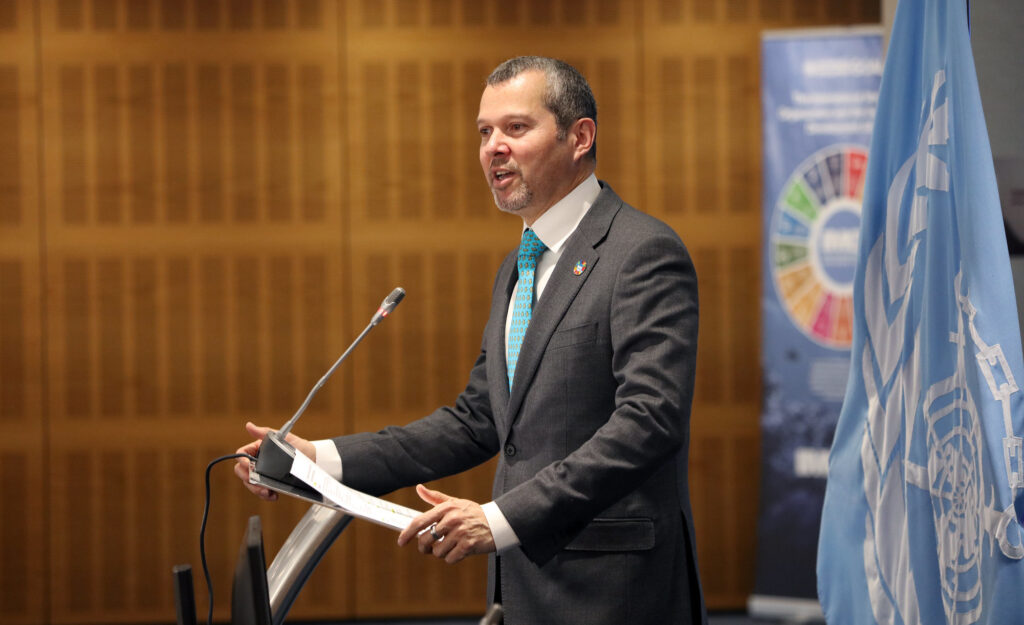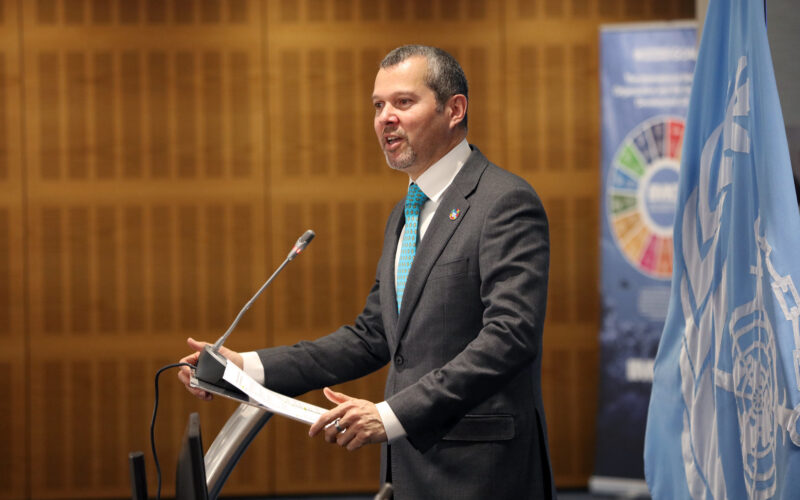(LONDON) — Arsenio Dominguez, secretary-general of the International Maritime Organization (IMO), shared the group’s plans and focus areas for the next four years, with the aim of ensuring safer, more secure and environmentally friendly shipping.
Speaking at a news conference Thursday at IMO headquarters in London, Dominguez outlined four strategic priorities: IMO’s work to regulate international shipping; its support to member states, particularly small island developing states and least developed countries; enhancing public awareness and image; and relations with people and stakeholders.
“As a global industry that is responsible for transporting over 80 percent of trade around the world, shipping is indispensable,” Dominguez said. “One thing I am very focused on is to make this organization a more diverse, inclusive and transparent institution.”
Seafarer safety and Red Sea attacks
The secretary-general touched on various challenges and opportunities for the maritime sector.
Highlighting the ongoing attacks on international shipping in the Red Sea, he condemned the violence and underscored the paramount importance of protecting seafarers’ lives. He continued to call for the de-escalation of tensions and the freedom of navigation of ships in the area.

Trade volume going through the Suez Canal has fallen by 42 percent over the past two months, according to estimates by the United Nations Conference on Trade and Development (UNCTAD).
The secretary-general underscored the resilience of shipping in the face of global challenges and confirmed that IMO is actively dialoguing with countries, industry partners and the international community to find solutions.
GHG emissions
The secretary-general provided an update on IMO work toward decarbonizing shipping by or around 2050. This makes it the first U.N. agency and first sector to define a global strategy to cut greenhouse gas emissions (GHGs), including mandatory measures to deliver on targets.
A timeline has been set, following IMO processes:
• March 2024 – Advance discussions of “mid-term measures” to support emissions reduction in the medium term. These measures include a global marine fuel standard and pricing mechanism. An interim report of the impact assessment that these measures will have on countries will be considered by the Marine Environment Protection Committee at its 81st session (MEPC 81).
• October 2024 – Finalization of impact assessment (MEPC 82).
• Spring 2025 – Approval of measures (MEPC 83).
• Autumn 2025 – Adoption of measures (six months after MEPC 83).
Supporting transparency, diversity and inclusion
Dominguez stressed his commitment to encouraging a culture transparency, diversity and inclusion in the work of the IMO.
In December, the organization trialed the livestreaming of the most recent meeting of the assembly – the highest decision-making body of the organization, including all 175 member states. Meetings of the committees and subcommittees are also open to media.
Since taking office on Jan. 1, the secretary-general has appointed a gender-balanced senior management team, enhanced multilingualism in IMO processes, and set a policy of participating only in public events or panels with gender representation.
– International Maritime Organization

